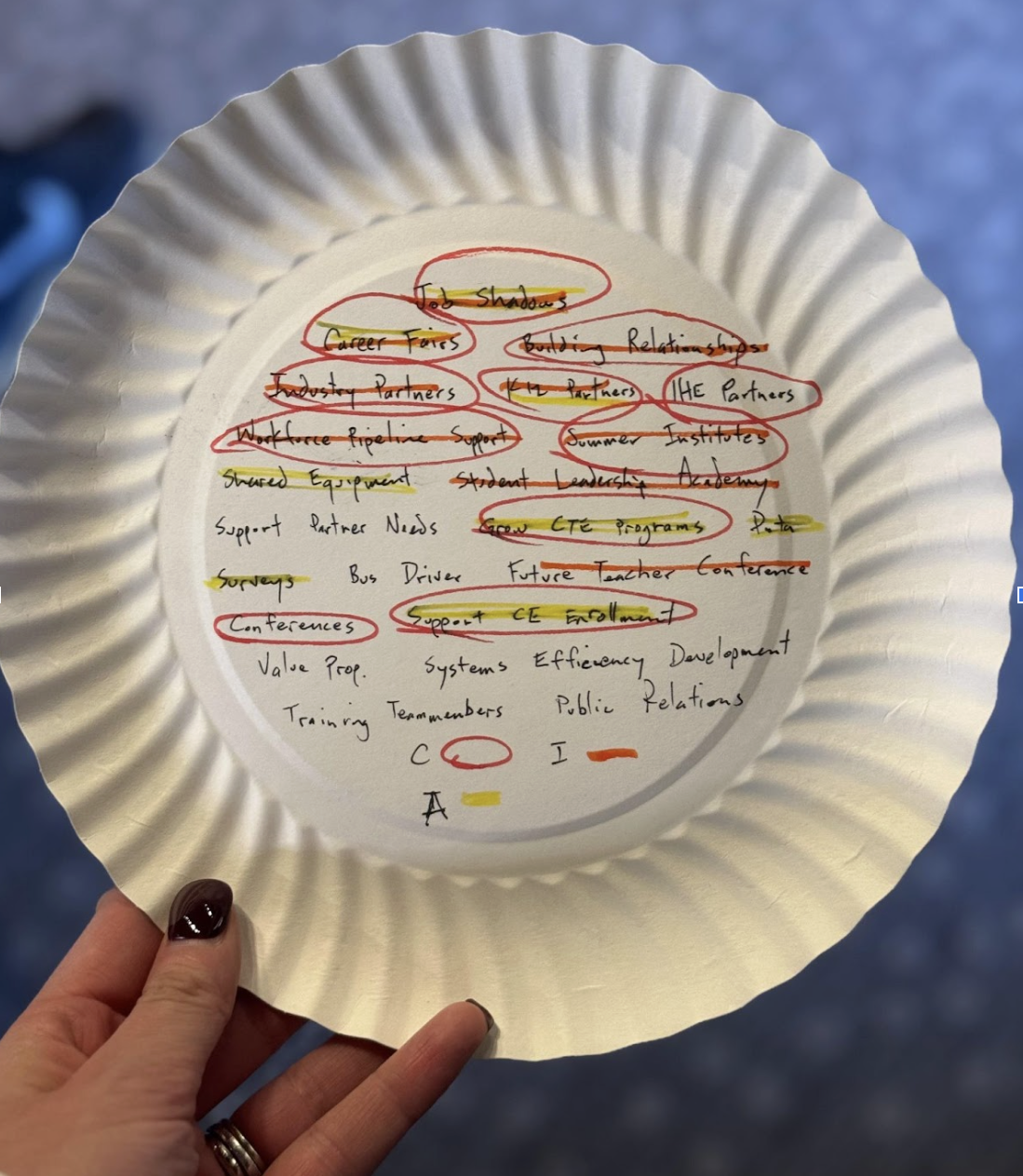
It’s no surprise that school counselors have a lot of responsibilities from career counseling, behavior intervention, social emotional learning, family and community resources and more. Because of this constant stretch, we hear often from education that it's difficult to ensure all students get access to quality postsecondary and workforce readiness activities.
The Postsecondary and Workforce Readiness office at the Colorado Department of Education (CDE) aims to alleviate this pressure and support schools in designing systems to implement Individual Career Academic Plan (ICAP) in Colorado’s K-12 postsecondary and workforce readiness plans through regional trainings across the state.
In a shared role with CDE, CWDC Education Consultant Sami Mooney works with partners to focus on increasing postsecondary and workforce readiness of high school graduates.
In mid-October, the team launched the first of six PWR Regional Trainings around the state and came to the Southwest Region in Durango, convening a group representing more than 16 different school districts.
Throughout the remaining regional training sessions Mooney will attend to gather insights and share key takeaways in a dedicated blog series starting in October.
The five other PWR Regional Trainings will include:
- October 30: Northwest and West Central Regions (Glenwood Springs)
- November 13: Southeast Region (Lamar)
- December 11: North Central and Northeast Regions (Greeley)
- January 14: Denver Metro Region
- February 4: Pikes Peak Region (Colorado Springs)
The Training
This year at CDE, the PWR office teamed up with the Office of Learning Supports to create best practices for implementing ICAP using the Colorado Multi-Tiered System of Supports (COMTSS). Using an MTSS model, supports schools in equitably supporting the varying needs of all students.
At the beginning of the day, participants fill in what “their plate” looks like with their responsibilities. Throughout the day, participants then take their scattered plate of tasks and align them with the ICAP system, identifying various levels of supports for students. Participants chose two sessions to deep dive into ICAP topics like drop out prevention, health and wellness and CDE resources/programs.

What we heard from the southwest region
Alongside the training, Mooney dedicated time to support and engage with participants in PWR regional training sessions, guiding them through MTSS models to better understand and uncover key challenges faced in implementing ICAP. Some notable highlights from these discussions include:
- ICAP capstone projects where students reflect on their postsecondary and workforce readiness activities throughout their K-12 career, and apply it to their next steps after graduation
- Ensuring counselors meet one-on-one with every junior and senior to identify steps after graduation
- The Southwest Education Collaborative serves as a regional, education and business intermediary to connect students to businesses exposing students to quality jobs
- Strong employer relationships in the region advancing student exposure
- Embedding industry recognized certifications into coursework
The region is also experiencing challenges that they are actively working around to best serve students. Key takeaways included:
- Distance between schools makes sharing resources and programs difficult. One school mentioned that students would need to travel more than an hour to the closest school in the district.
- Recruiting and retaining technical educators can completely stall programs. One district mentioned that a skilled trades instructor left the district last year, and after three months into the school year, the position has yet to be filled. This makes long-term program development difficult—especially for small rural schools. Planning around scheduling poses a challenge when there is uncertainty if courses will have enough students.
- Limited staffing in rural areas staff wearing several hats, making it difficult to devote the amount of time needed to implement ICAP activities at scale.
This first PWR Regional Training session provided valuable insights into challenges and successes in implementing ICAP, helping the team move forward with actionable strategies. Stay tuned for more in-depth coverage and key insights in Mooney’s ongoing blog series, where we’ll continue to explore the journey and share lessons learned along the way. If you would like to know more, please contact CWDC Education Consultant Sami Mooney.